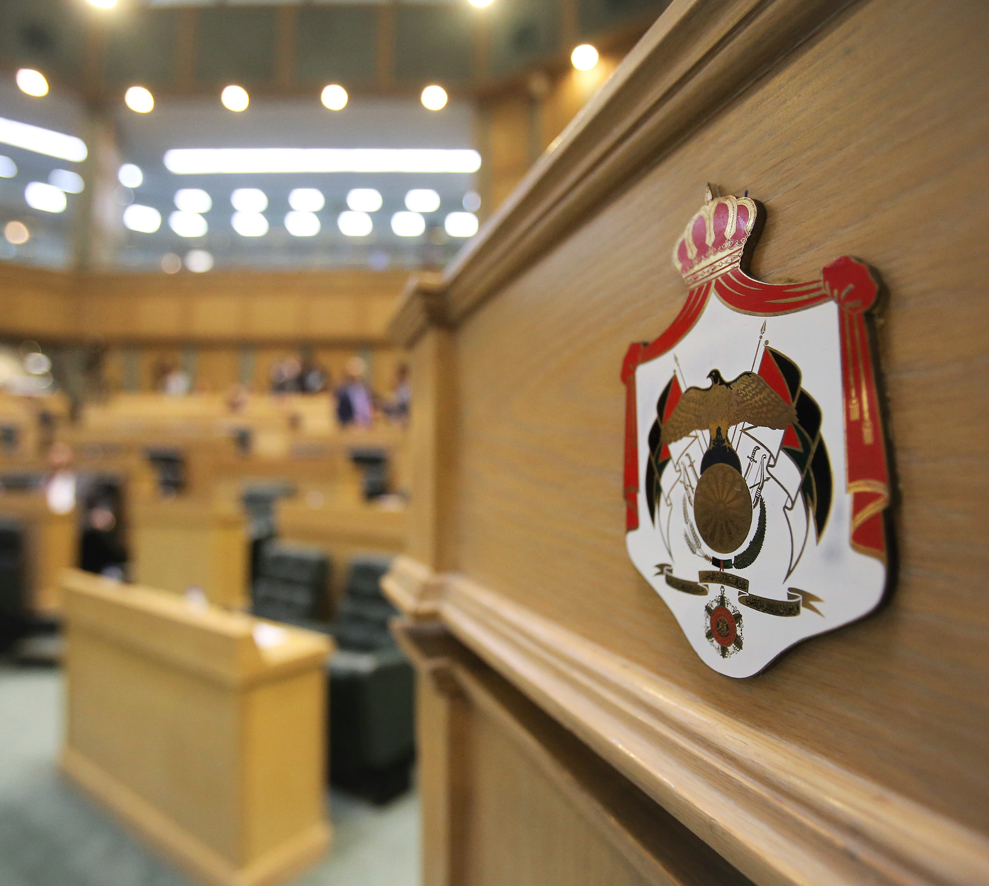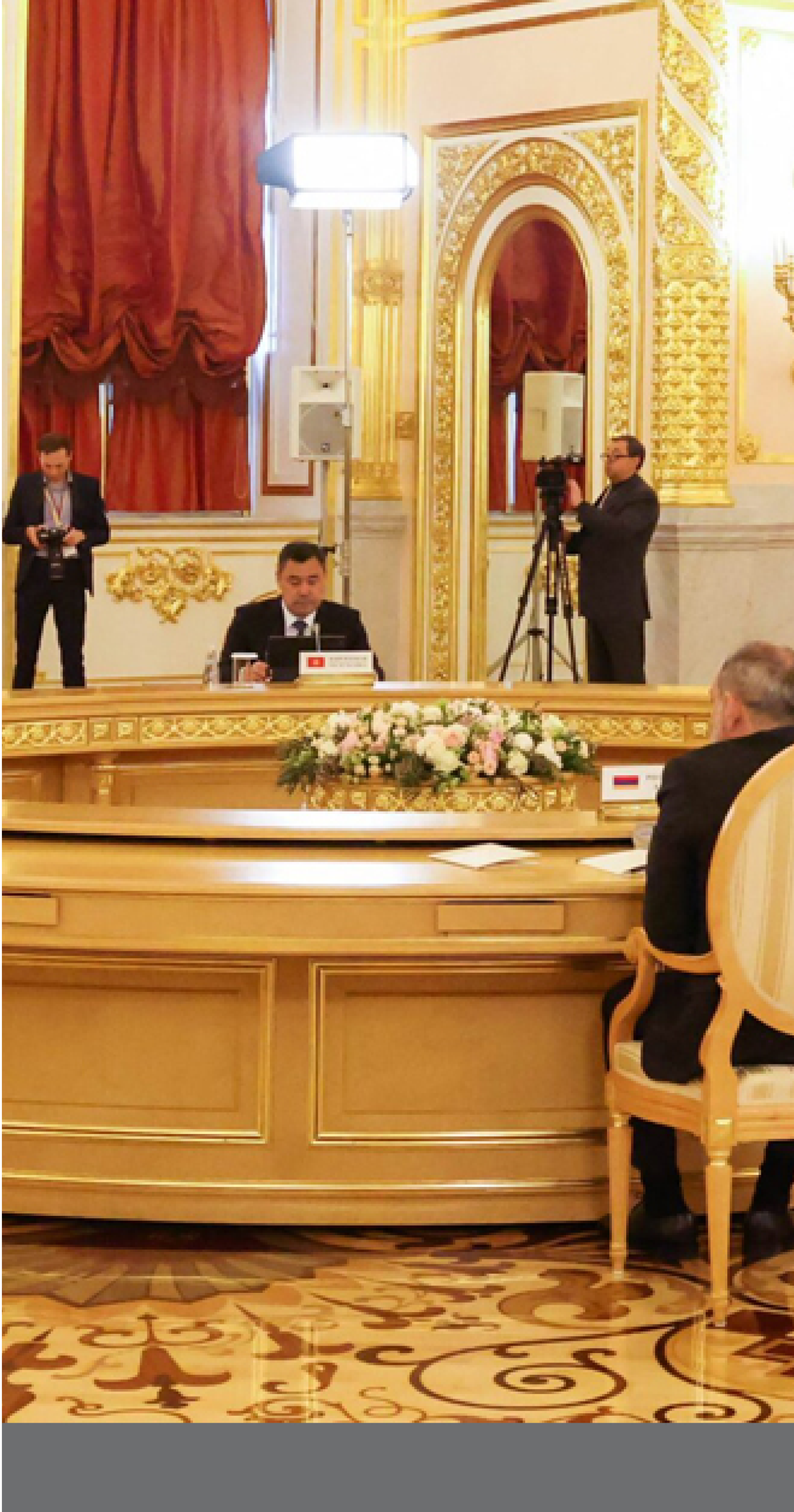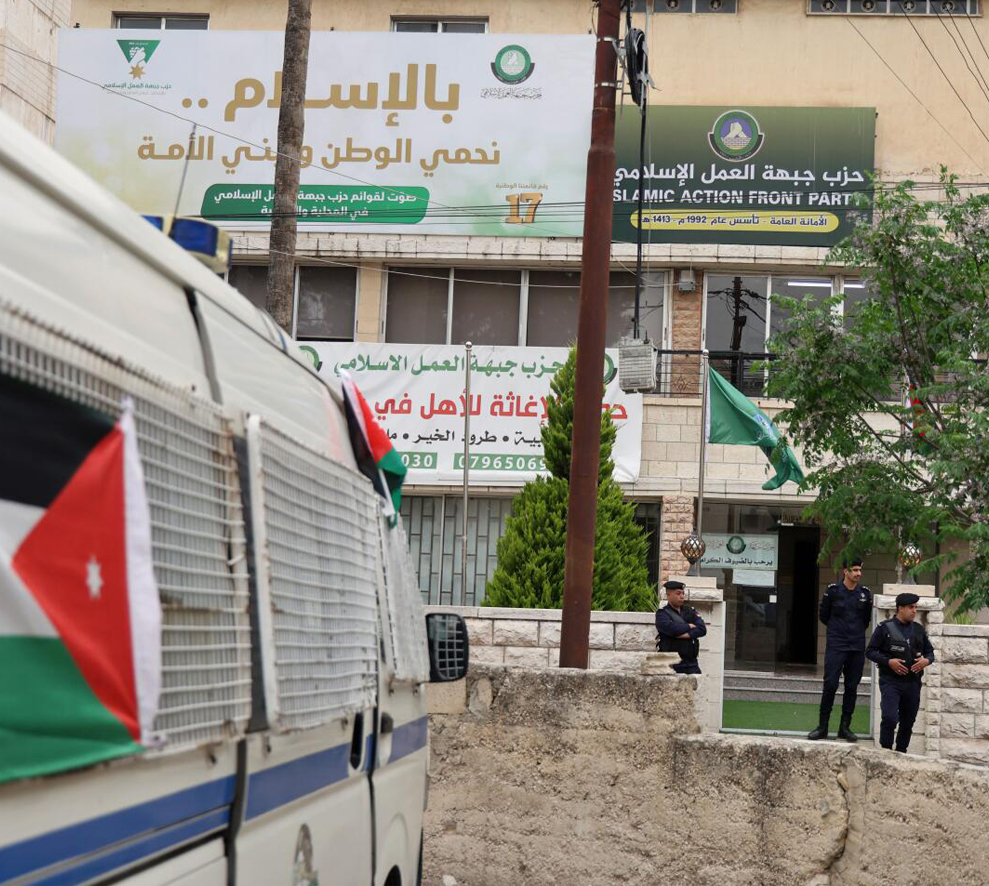Jordanian political parties are facing both internal and societal pressures as the parliamentary elections, scheduled for September 10, 2024, approach. Their participation is a crucial component and advanced stage in the ongoing political reform and modernization process in the country. This is due to its potential impact on electoral behavior, parliamentary work, and future government performance. This significant role follows decades of gradual reform efforts, starting with the formulation of the national agenda in 2005 and continuing with the National Dialogue Committee in 2011.
Official data reveal that 36 of the kingdom’s 38 political parties are participating in the elections, competing for 41 of the seats allocated to them in the upcoming Jordanian House of Representatives. An analysis of the general party and electoral landscape in Jordan shows a competitive effort among both new and traditional parties to attract voters and inflate their numbers. These parties are striving to demonstrate their capabilities and qualifications for future roles in the Jordanian political arena. This pressure compels them to present themselves as mature entities with comprehensive programs, solid foundations, and institutional structures.
While this is a positive development, it may come at the expense of more critical issues, such as their legitimacy and expectations during the initial phase. It is important not to elevate public and official expectations too high, given their current capabilities, resources, and the number of seats allocated to them in the 20th council. Therefore, parties need to reorganize their priorities to align with the stage’s requirements and focus on gradual development. Achieving a more cohesive party experience will be essential when they reach 65% of the seats in the 22nd House of Representatives.
Jordanian Parties: Seeking Distinction, Leadership, and Opportunities
The outputs of the Royal Committee for the Modernization of the Political System formed in 2021 have assigned a major and pivotal role to political parties in both the country’s political life and its future aspirations for political practice. Two out of the six subcommittees were established to examine the laws governing parties and elections while a third subcommittee focused on constitutional amendments. These efforts aimed to align the subcommittees’ outputs with the Jordanian Constitution, particularly concerning the enhancement of party independence and the achievement of separation between the executive and legislative powers.
In 2022, the Law of Parties No. (7) and the Law of Elections for the House of Representatives No. (4) were approved. The latter is part of a gradual process that unfolds in three stages. The first stage involves allocating to parties 30% of the House of Representatives seats, with the allocation increasing to 65% in the third stage after 10 years.
The current parliamentary elections are significant as they represent the first step in Jordan’s political modernization process. This effort complements a broader reform agenda that includes economic modernization and public-sector reform. The state has adopted a gradual approach in all these areas, considering interim needs and ensuring alignment between outcomes and the affected environment.
However, political modernization is more complex and challenging compared to the economic and administrative tracks. Unlike these other areas, political modernization transitions from direct state and government management to popular political practice. This shift places a significant responsibility on political parties since they are the institutions tasked with enhancing this practice and reflecting its results at the national level.
Given that many active parties in the political arena are either new and inexperienced or traditional and in need of substantial review, it is essential to carefully examine their practices, promises, programs, and rhetoric. This scrutiny is necessary to ensure that their mistakes do not adversely affect public engagement or the overall modernization process.

One of the most important issues for the parties is to distinguish themselves from local lists, which may remain unchanged from previous elections both in terms of electoral campaigns and voter preferences. While integrating and expanding constituencies will, in the long term, benefit national party lists, parties must focus their electoral and rhetorical campaigns, methods, and practices on highlighting the differences between local and national lists.
The national lists are central to political modernization, and their outcomes—whether positive or negative—will impact the parties themselves, as well as voter participation rates and the effectiveness of the 20th Council’s parliamentary work.
Secondly, parties need to distinguish themselves from previous implementations of national lists, such as those introduced in the Electoral Law No. (25) of 2012. This law granted voters a second vote for a closed proportional list at the national level, which was allocated 27 seats in the House of Representatives at that time.
It is important to consider the legislative and legal differences between the two experiences and how these differences should be reflected in practices. The general lists from that period, some of which were party-based, did not prioritize building popular bases or addressing public issues and satisfaction levels. Instead, their main focus was electing one or more of their candidates to the House of Representatives, viewing the experience as changeable. In contrast, the current experience is seen by the state as more strategic.
Defining goals for Jordanian parties and working within them is crucial within the framework of party work and its requirements. It can alleviate the pressures and burdens placed on the parties, reduce their efforts to prove themselves, clarify the path they should follow, and relieve them from making promises and proposals that might be questioned by the public at a later stage.
As detailed below, the goals for the first phase can be specifically outlined, as well as those necessary for transitioning to the second and third phases.
- Gradual Development of Realistic Party Programs Aligned with the Progressive Evolution of Party Structures, Capabilities, Tools, and Roles
Although Jordanian parties do not primarily use their programs as a central tool in their electoral campaigns, they often showcase them extensively in television programs, debates, and podcasts. One of the major issues related to this phenomenon is that these programs tend to integrate into their discussions large-scale issues such as unemployment rates, national debt, budget deficits, tax system problems, investment issues, and challenges in the private sector into their discussions.
However, the current phase does not provide parties with the capacity to deliver on the solutions, promises, and visions they propose. It is likely that the 41 seats will be distributed among five to six parties, which means that some will not even secure the minimum number of representatives needed to propose laws, submit inquiries, or impose impeachment. Even if these parties form alliances with local bloc members, such alliances will remain temporary under the parliament’s dome. The member of a bloc has achieved their seat individually, whereas the party member has obtained it with the support of their party.
On the other hand, many party programs are presented within a theoretical framework. These programs often disconnected from the reality that many of the issues they address are complex and sensitive, involving numerous actors such as state institutions, the government, international agreements, and International Monetary Fund agreements. Moreover, they do not align with the current public work reality or the state’s present priorities because the programs have not been tailored or built according to the vision of economic modernization or the public-sector modernization roadmap.
- Active Contributions in Increasing the Election Participation Rate
Increasing voter participation in Jordanian parliamentary elections is a primary goal of political modernization, especially given the low participation rates in previous elections. The average voter turnout in the last three elections was around 32%. Achieving a higher turnout requires specialized party practices that include engaging intensively with specific segments of society and delivering targeted, strategic messaging to these groups. Motivating these segments could positively impact overall participation. Additionally, parties need to establish internal practices that effectively utilize their members and their surrounding communities.
In this context, it is recommended that parties intensify their unconventional campaigns and activities in the governorates of Amman, Irbid, and Zarqa, which have the highest population density in the kingdom and yet often have lower participation rates other governorates. The responsibility to stimulate and encourage participation in these areas lies with the parties since their lists are national, they have the capacity to operate across various governorates, and, unlike local lists with limited scope and reach, political parties in Amman, Irbid, and Zarqa should have the financial resources necessary for extensive promotional campaigns.
Parties should also diversify their promotional campaigns to include opinion polls, seminars, conferences, and workshops organized in these governorates. Additionally, they should conduct volunteer and field campaigns across different governorates and areas of the kingdom.

At the same time, it is beneficial to focus on first-time eligible voters, who number approximately 590,000 and represent about 12% of the total eligible electorate. Engaging this young demographic is crucial for attracting them as party members, ensuring their repeated participation in elections, and preventing their disengagement, which could negatively impact future participation rates. To attract this group, parties should organize special youth-focused electoral campaigns by enhancing the media presence of their young cadres and potentially leveraging social media platforms and influencers. This demographic responds weakly to elite discourse and major party programs if they do not align with their interests.
Additionally, there is a need to leverage the party members, who number over 88,000 and represent about 2% of eligible voters. These individuals form a significant voting bloc and are key to attracting broader community segments to participate. This should have been considered by parties when selecting their election lists. Ideally, these members should be involved in voting or nominating candidates for the party lists.
However, it appears that most parties selected their lists through limited deliberations among party leaders, excluding other members who constitute a larger and more important voting bloc. Many parties have included these members merely to meet the legal requirement of having at least 1,000 founding members to register the party, suggesting that approximately 38,000 of the 88,000 members joined for this purpose.
- Qualifying New and Effective Leaders
Currently, the stage does not require parties to be entirely programmatic. This does not mean they should adopt populism or ideology. Rather, they would be wise to enhance their reputation as popular parties capable of understanding and aligning with public sentiment. This involves engaging with specialized and precise issues, improving political practices, and addressing voter apathy and dissatisfaction with parliamentary work.
Among the suggestions is for parties to diversify their media presence and electoral campaigns, avoiding overreliance on traditional figures such as former statesmen, ministers, or longstanding party members. These individuals have recently dominated the political and media landscape, affecting the parties’ ability to connect with or influence the public, particularly the youth. Many of these figures are associated with a popular mindset, either through governmental rhetoric that lacks broad trust or through ideological discourse that raises worried concerns about external ties and true objectives. This does not mean traditional figures should completely withdraw from the scene but rather ensure that they are not allowed to overshadow fresh-faced party members or candidates. In essence, there are four key goals for parties to achieve.
1- Establish a Media Presence of Party Candidates
The media visibility of party candidates distinguishes them from local bloc candidates, demonstrates the internal cohesion and institutional integrity of the party, and enhances its ability to attract new members. It also increases public interest in the party, its program, and agenda—opportunities that traditional figures, whose speeches and styles may be predictable, do not provide.
2- Establish a Media Presence for Non-Candidate Party Members
Allowing non-candidate party members to have media visibility and freedom of speech reflects the intellectual strength of the party and the political cohesion among its members. It also provides a platform for young members to promote the party’s ideology within their age group. Otherwise, this group’s membership might become inactive or withdraw from the party after the elections.
3- Provide Space for Written Content
Offering opportunities for parties and their members to produce written content—such as studies, articles, or blogs—which is currently minimal, is a crucial and effective way to disseminate the party’s ideas and increase its influence.
Here, an important, albeit sensitive, issue is the regional context accompanying the elections, specifically the war in Gaza and the escalation in the West Bank. Although the decision to hold elections underscores Jordan’s ability to manage its internal affairs despite turmoil and its decades-long resilience against regional influences, one must not ignore the potential impacts of the war on the electoral process. First, the war could affect voter attitudes, especially in light of ideological parties attempting to exploit the war to mobilize citizens and thus enhance their chances of increasing their parliamentary seats. Second, the war may impact voter turnout. For instance, although the Jordanian parliamentary elections were held in 2020 despite concerns related to the COVID-19 pandemic, this did not prevent a decline in participation, which, at 29%, reached its lowest level in years.
- Prioritize Improvement of Parliamentary Work Before Focusing on a Party Government
One of the most significant contributions parties can make during the initial phase of political modernization is to enhance and improve parliamentary work. Their ability to change the negative perception citizens have of the House of Representatives will be a major achievement in the 20th Council. Striving to achieve this goal should be woven into into every electoral campaign. The parties need to demonstrate the expected changes in the parliamentary scene with their participation. For instance, during the 19th Council, two deputies were expelled and two others had their membership suspended.
Two of the deputies appeared before the State Security Court: one on charges of insulting His Majesty the King and the community and the other on charges of weapon smuggling. The benefits of this go beyond comparing the parliament before and after the involvement of parties. Holding officials responsible for their actions enhances the prospects for new parties, especially in comparison to traditional parties that were part of, and active in, such landscapes.
In this context, the party’s proposals and speeches should align with the public’s aspirations, avoiding rigid or traditional rhetoric. They should focus on monitoring public opinion and framing it within the House of Representatives. This is a key function of parties, as they represent the citizens’ aspirations and ideas and bring them to the parliamentary agenda.
In addition, parties should also play an educational and awareness-raising role in managing parliamentary orientations. Their internal structure should include a specialized department for conducting studies, research, and opinion surveys to gauge public opinion that will help guide and shape their parliamentary role.
Finally, the remaining days before the elections and the space available for party activities during this period provide a window for launching and building cumulative experience. Parties can refine their electoral campaigns and programs to align with the requirements of each phase, maintain their roles in the public sphere, strengthen their electoral bases, and adopt practices distinct from local lists.
Keep in touch
In-depth analyses delivered weekly.

Related Analyses:











.jpg)